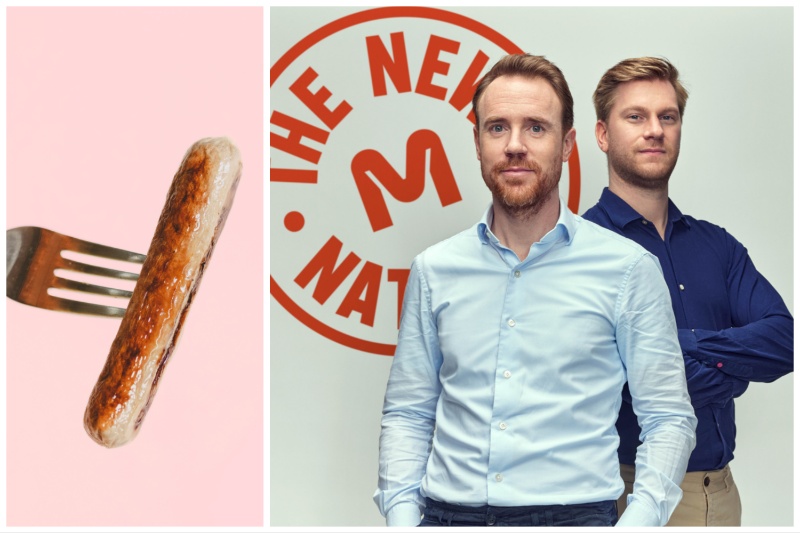Meatable claims mass market production on track with fastest process to cultivated meat

A Dutch food tech company that is on a mission to deliver cultivated meat at scale has reached a major milestone in the company’s history with its technology to create cultivated pork products in eight days, thanks to its unique and superior differentiation process.
Meatable has been working to improve the efficiency of its process, while also increasing the amount and quality of its fat and muscle tissue.
As a result, Meatable says it can create high-quality cultivated meat with the right level of fibre formation, protein, fat accumulation, and key meat flavours in only eight days, a significant reduction in the process which previously would take three weeks. Together, these components translate into products with the familiar bite, texture, and taste that makes them indistinguishable from traditional meat.
To create its cultivated meat, Meatable isolates a single animal cell and replicates its natural growth process using opti-ox technology in combination with pluripotent stem cells (PSCs). PSCs can multiply indefinitely without alteration, giving them an advantage over immortalised cell lines which are more commonly found in the cultivated meat industry, but it can be challenging to change stem cells into more specialised cells such as muscle cells.
Opti-ox technology makes it possible to overcome this so Meatable can produce real muscle and fat cells that are fully differentiated in just a few days. This is complemented by Meatable’s continuous perfusion process, which enables the company to work in a continuous cycle and generates cell densities of about 80 million cells per millilitre already, which contributes to superior productivity so the process is easy to scale. This is a landmark moment for the Dutch-based company and brings it closer to reaching its mission of satisfying the world’s growing appetite for meat without harming people, animals or the planet.
Krijn de Nood, co-founder and CEO of Meatable, says: “This marks a very important milestone for Meatable. We’ve now demonstrated that we have the world’s most efficient process, which is required if we are to create products that compete with the low prices of conventional meat. To achieve our vision of providing the world with harm-free meat, we have to be price competitive. If we can’t achieve this, then it will remain something that only wealthy people can afford, making it incredibly difficult to encourage consumers to embrace cultivated meat in their diets.
“With our recent achievements, we have created a production process that does exactly that, with cell densities of 80 million per millilitre, a continuous production process, and a differentiation time of only a few days. That combination enables us to create affordable cultivated meat at scale. I’m excited for the next steps to get our products regulated and ready for consumers to try next year so that we can satisfy the world’s appetite for meat without harming people, animals, or the planet.”
The breakthrough means Meatable is ready to scale up the production of its products at a cost-competitive price point to reach mass market demand to ensure widespread accessibility. As the demand for meat is set to grow from 350 billion kg annually to between 460 to 570 billion kg by 2050, cultivated meat like Meatable’s could have a significant impact in reducing the meat industry’s impact and becomes a staple in diets around the world.
By 2035, Meatable hopes to save an estimated 27 million animal lives cumulatively through its revolutionary process.
Daan Luining, co-founder and CTO of Meatable, says: “When it comes to creating cultivated meat, Meatable has demonstrated unbeatable efficiency in comparison to both traditional meat production and the cultivated meat industry average. Last year it would take us three weeks to differentiate cells and now we’ve brought that down to only a few days. We expect to continue to reduce this time period further. Beyond this, we’ve created a product of the highest quality with the expressions of proteins and long fatty acid chains which are essential to give meat its unique pork sensory experience.
“What has also been critical to these developments is the team’s unwavering commitment to creating only the best possible products. We know that cultivated meat is the future of consumption and with this breakthrough, we’re well on our way to building that future.”



